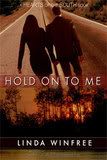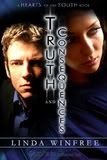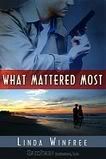Who Talks Like That?
Picture this:
Me, sitting at my desk, after the final bell on Friday afternoon. Make that the Friday-from-hell afternoon. I've taught my six classes (with kids who for some reason have all freaked out because the weather has changed -- I mean, they are wound), subbed during my planning period, and it's five minutes until I have to be at One Act practice.
I have a new book on my desk. One someone passed along to me, one by a well-known author, one that the cover, the blurb and word-of-mouth all make me want to read. I'm sneaking a peek before I have to go wrangle eight Friday-hyper teenagers through an hour and a half of play practice.
I read through chapter one, which is actually an epilogue. I skim into chapter two. Flip over to chapter seven. Flutter pages until I get to chapter twelve. Sipping at the book -- looking at the author's style (this is my standard MO when I get a new book to read).
My classroom door opens, one of my favorite students walks in to get some forgotten item from his locker. "What are you reading?"
I grimace a little. "A book Mrs. Brooks gave me. I'm probably not going to finish it."
He pulls his independent novel from his locker and gives me a questioning look. "Why not?"
I put the book aside, pick up my script for One Act. "Because the dialogue is unrealistic. They don't sound like real people. The main character is an FBI agent, and he doesn't talk like a man or a cop."
He nods. "Yeah, that's like that book I read for my novel paper. The story was good, but I skimmed what the people said."
I walk out with him, locking the door behind me. My team is waiting on the stage, already practicing lines and blocking. For days, they've been complaining about some of their lines, the ones where the playwright didn't use contractions. They feel like it's stilted and unrealistic, which in places it is. "Do no and did not and can not . . . Ms. Winfree, who talks like that?"
Who, indeed?
Dialogue is a strong tool in any writer's toolbox. It's more than just what the characters say . . . it's a way to reveal plot, backstory, characterization, subtext, and more. Dialogue brings a story and the people in it to life.
Unrealistic dialogue can kill a story quicker than a wicked teacher look can quell a classroom.
When I teach creative writing, I usually find that my students tend to write dialogue that has everyone sounding the same. To combat that, I have them complete this little exercise. I turn them into spies.
For a week, their task is to listen to conversations wherever they go. They eavesdrop. They take notes. How do their friends talk? Their parents? Their teachers? The old ladies at church? The farmers having coffee at the local diner? It isn't so much the topic of conversation I want them focusing on, but the syntax and diction used. Do men talk differently than women?
At the end of that week, we come back together and discuss what they've discovered. Their insight always amazes me. At that time, they go back to their short stories, really think about their characters, and revise the dialogue accordingly. It's amazing the difference this simple exercise makes.
The next step involves having them read the dialogue aloud to their peer response partners, revising again if needed. By the time I get the final drafts of their short stories, the characters sound like real people.
Individual real people.
I don't find myself asking, "Who talks like that?"
And that makes all the difference in the world.
What strategies do you use for crafting realistic dialogue?
Me, sitting at my desk, after the final bell on Friday afternoon. Make that the Friday-from-hell afternoon. I've taught my six classes (with kids who for some reason have all freaked out because the weather has changed -- I mean, they are wound), subbed during my planning period, and it's five minutes until I have to be at One Act practice.
I have a new book on my desk. One someone passed along to me, one by a well-known author, one that the cover, the blurb and word-of-mouth all make me want to read. I'm sneaking a peek before I have to go wrangle eight Friday-hyper teenagers through an hour and a half of play practice.
I read through chapter one, which is actually an epilogue. I skim into chapter two. Flip over to chapter seven. Flutter pages until I get to chapter twelve. Sipping at the book -- looking at the author's style (this is my standard MO when I get a new book to read).
My classroom door opens, one of my favorite students walks in to get some forgotten item from his locker. "What are you reading?"
I grimace a little. "A book Mrs. Brooks gave me. I'm probably not going to finish it."
He pulls his independent novel from his locker and gives me a questioning look. "Why not?"
I put the book aside, pick up my script for One Act. "Because the dialogue is unrealistic. They don't sound like real people. The main character is an FBI agent, and he doesn't talk like a man or a cop."
He nods. "Yeah, that's like that book I read for my novel paper. The story was good, but I skimmed what the people said."
I walk out with him, locking the door behind me. My team is waiting on the stage, already practicing lines and blocking. For days, they've been complaining about some of their lines, the ones where the playwright didn't use contractions. They feel like it's stilted and unrealistic, which in places it is. "Do no and did not and can not . . . Ms. Winfree, who talks like that?"
Who, indeed?
Dialogue is a strong tool in any writer's toolbox. It's more than just what the characters say . . . it's a way to reveal plot, backstory, characterization, subtext, and more. Dialogue brings a story and the people in it to life.
Unrealistic dialogue can kill a story quicker than a wicked teacher look can quell a classroom.
When I teach creative writing, I usually find that my students tend to write dialogue that has everyone sounding the same. To combat that, I have them complete this little exercise. I turn them into spies.
For a week, their task is to listen to conversations wherever they go. They eavesdrop. They take notes. How do their friends talk? Their parents? Their teachers? The old ladies at church? The farmers having coffee at the local diner? It isn't so much the topic of conversation I want them focusing on, but the syntax and diction used. Do men talk differently than women?
At the end of that week, we come back together and discuss what they've discovered. Their insight always amazes me. At that time, they go back to their short stories, really think about their characters, and revise the dialogue accordingly. It's amazing the difference this simple exercise makes.
The next step involves having them read the dialogue aloud to their peer response partners, revising again if needed. By the time I get the final drafts of their short stories, the characters sound like real people.
Individual real people.
I don't find myself asking, "Who talks like that?"
And that makes all the difference in the world.
What strategies do you use for crafting realistic dialogue?







1Comments:
That's a good tip - listening to conversations around you. I've been doing that particularly when my DH is with his guy friends. I'm sure he thinks I'm spying on him, but really, I just want to know how he and his friends talk when they think "the girls" aren't around.
Post a Comment
<< Home